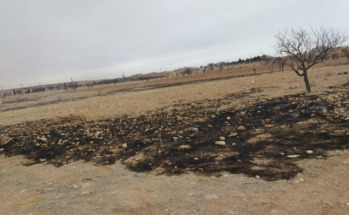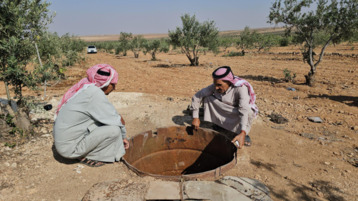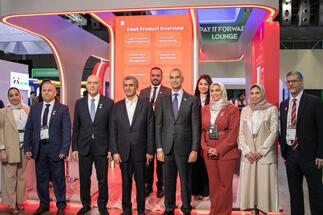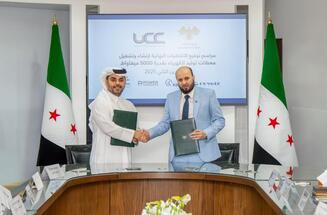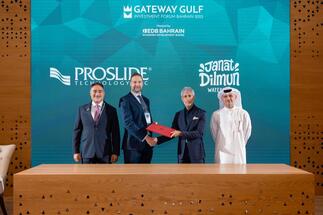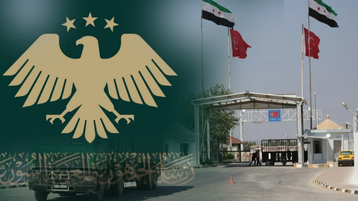-
The struggle for influence: Israel and Turkey seek to divide areas of control in Syria

As Israel and Turkey compete for influence in post-Assad Syria, tensions are escalating over military and economic ambitions between the two countries. Israel is seeking to counter Turkey's growing presence, while both nations are looking for agreements to partition the region to establish stability in Syria.
Tensions between Israel and Turkey, which had recently intensified, eased somewhat when Turkish Foreign Minister Hakan Fidan stated at a NATO conference in Brussels that "there is no confrontation with Israel in Syria, and it is up to the Syrians to determine security matters."
Fidan's statement marked a noticeable improvement compared to the previous week when Turkish President Recep Tayyip Erdoğan expressed his hope that "God would destroy Israel." This was shortly before Israeli Air Force fighter jets completely destroyed the T-4 military airport in Syria, which the Turkish army subsequently entered and controlled.
The following morning, Wednesday, Israeli Defense Minister Israel Katz warned Syrian leader al-Shar’a: "If you allow anti-Israel forces to enter Syria and threaten Israeli security interests, you will pay a very heavy price." To clarify that the message was not solely directed at the current Syrian governor, Katz added, "The Air Force’s activities yesterday at T-4 airport in Hama and the Damascus area are a clear message and a warning for the future. We will not allow harm to Israel’s security."
Katz refrained from explicitly naming Turkey, as Israel still hopes to avoid direct confrontation and reach an understanding with Ankara, potentially mediated by the United States and possibly Russia. However, the bombing of four major military airports in Syria that night sent a message to the "sultan" in Turkey.
Erdoğan and his party and regime are ideologically allied with the Muslim Brotherhood, of which Hamas is also a part. This is the primary reason for the long-standing animosity between Israel and Turkey, which became public after October 7, especially after the Israeli army commenced operations in the Gaza Strip.
By December 8, 2024, when the Assad regime had completely collapsed, and his loyal army dissolved, the Shiite "Axis of Resistance" suffered a severe blow, increasing concerns within the Israeli security and intelligence community about Turkey potentially exploiting the power vacuum in Syria to create a threat to Israel.
The direct source of these concerns is the close relationship between Sunni jihadist rebel groups and Turkey, which has supported them logistically and politically throughout the Syrian civil war, even after it appeared that the conflict had subsided. The Sunni rebel enclave in Idlib existed thanks to Turkey, where the Hay'at Tahrir al-Sham organization, the umbrella for jihadist rebel groups led by Ahmad al-Shar'a, the former leader of al-Qaeda in Syria, overthrew the Assad regime.
Learning from the events of October 7, the Israeli army seized every opportunity and positioned itself in the buffer zone to prevent a scenario where Sunni jihadist fighters could find themselves just a few hundred meters from Israeli towns in the Golan Heights. Simultaneously, the air force bombed the strategic military infrastructure of the Syrian army and Hezbollah throughout Syria, aiming to destroy stockpiles of weapons and prevent them from falling into the hands of Hay'at Tahrir al-Sham—or more importantly, Hezbollah.
This was Israel's first strategic step to confront the direct threats posed by the collapse of the Assad regime in Syria. However, within weeks, Israel observed that Turkey intended to leverage its influence over the Sunni rebels to establish a military and economic foothold in Syria. Turkey has maintained a de facto security zone within Syrian territory for years, several miles wide, to prevent armed Kurdish groups from assisting their counterparts in the Kurdistan Workers' Party (PKK), which operates against the Turkish government in southeastern Turkey in pursuit of Kurdish autonomy.
Now, however, Erdoğan seeks to expand and solidify Turkey's military and economic presence throughout Syria as part of a "new Ottoman" strategy that Turkey has pursued over the past decade. This strategy aims to re-establish Turkey's position as a dominant regional power in the Middle East and an important player on the international stage.
Turkey has exploited every political vacuum or weakness in the Middle East, especially since the Arab Spring, to establish a foothold. Today, it has permanent military bases in eight countries throughout the Middle East and Africa, including northern Iraq, northern Syria, Qatar, Somalia, Chad, and northern Cyprus.
This expansion also serves Turkey's economic ambitions to gain control not only over gas fields in the Mediterranean but also to prevent Mediterranean countries from trading and transporting gas to Europe. The economic friction over control of gas exploration areas around Cyprus and Turkey's attempts to block the construction of an undersea gas pipeline in the Mediterranean—aimed at transporting gas from Egypt, Israel, and Cyprus to Europe—are central points of contention between Israel and Turkey.
However, the main point of tension between Jerusalem and Ankara now is Turkey's efforts to establish a presence and influence in Syria at the expense of Iran and Russia. According to global media reports, Erdoğan has suggested to al
You May Also Like
Popular Posts
Caricature
opinion
Report
ads
Newsletter
Subscribe to our mailing list to get the new updates!

